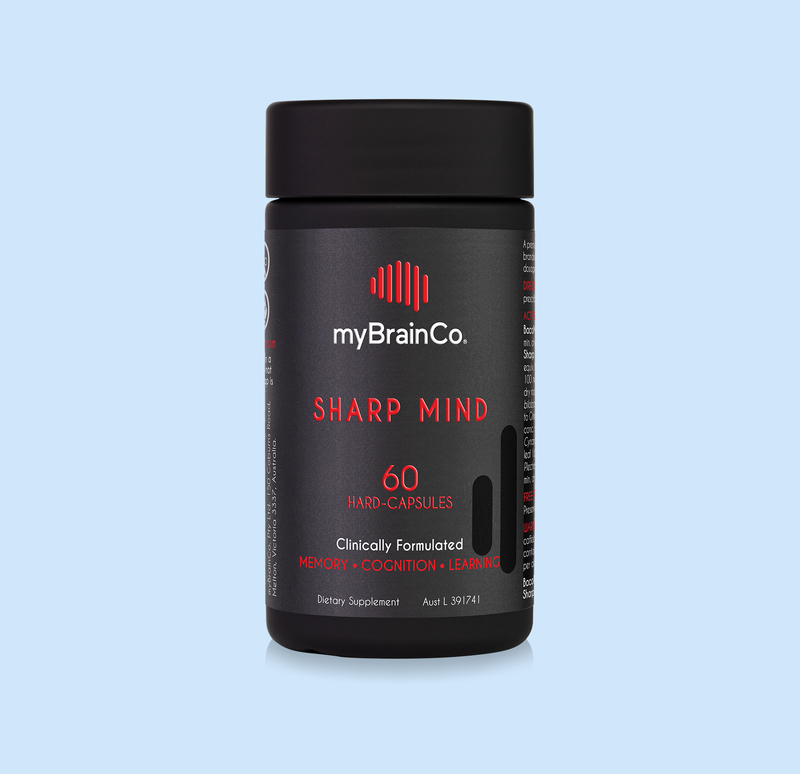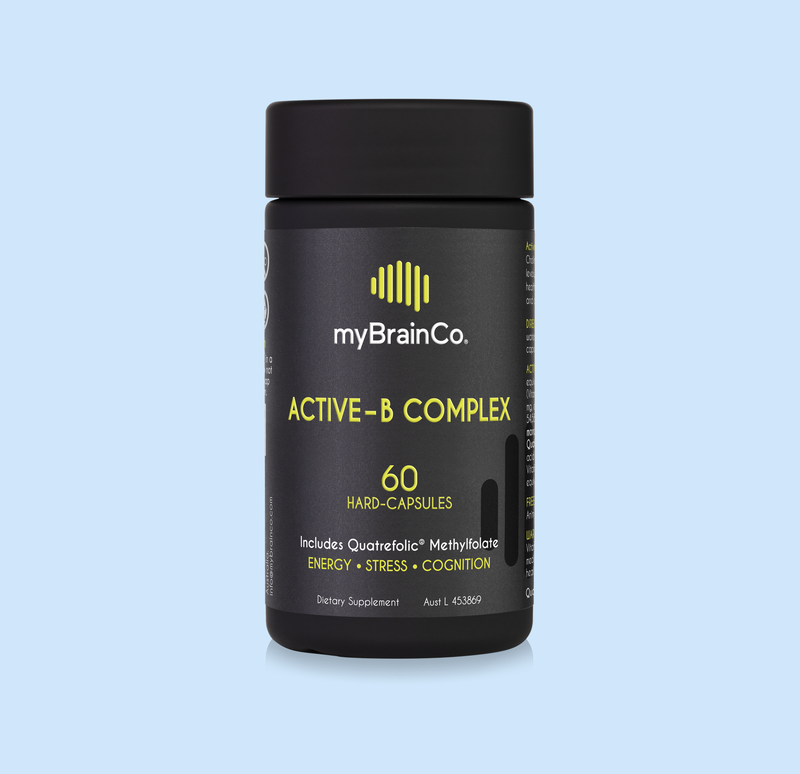Creatine is best known for its effects of enhancing muscle strength and athletic performance, what is lesser known is how significantly it can contribute to cognitive function and neurological health.
This naturally occurring compound helps to supply energy to all cells in the body, particularly muscle cells, by increasing the formation of adenosine triphosphate (ATP), which is vital for cellular energy transfer.
Beyond its well-documented effects on physical performance, creatine is increasingly recognised for its potential for improving mental sharpness, reducing fatigue, and offering neuroprotective properties, making it a valuable supplement for both athletes and those seeking cognitive or overall performance enhancement.
What Are The Benefits Of Taking Creatine?
Creatine Improves Exercise Performance and Promotes Muscle Building
Creatine supports muscle growth by increasing the availability of ATP, the primary currency for muscular contractions. With more ATP available, it boosts performance during short bursts of high-intensity exercise. More tangibly, this means you can lift heavier weights or do more repetitions, which leads to those desired gains in muscle growth.
Creatine supplementation has been shown to increase strength, particularly in weightlifting and resistance exercises. Many athletes employ creatine to support improved performance and muscle development.
One study of American college football players taking 20-25g creatine with carbohydrate per day for 12 weeks during off-season training found they could achieve greater gains in strength and muscle mass and reported no adverse effects.
Creatine Can Aid Injury Prevention and Recovery
Whether you’re an athlete or an avid exercise enthusiast, it’s just as important to be able to recover quickly from exercise as it is to perform the exercise itself. Being able to recover helps to facilitate more opportunities to exercise and reach your fitness goals.
Creatine supplementation has been shown to aid recovery after exercise by supporting glycogen replenishment and reducing muscle damage and inflammation. This can lead to quicker recovery times and less debilitating muscle soreness.
Not only can creatine support the recovery process, but it’s also been shown to be effective for injury prevention. In another study of American college football players, taking a loading dose of 16g/day for 5 days followed by 5-10g daily for 21 months, those players taking creatine experienced less incidence of cramping, dehydration, muscle tightness, muscle strains/pulls, non-contact injuries, and total injuries and/or missed practices than those not taking creatine. Injury is one of the most common barriers to continued exercise, so being able to proactively prevent this is a great tool to maintain activity levels.
The Neurological Benefits of Creatine Supplementation
Research indicates that creatine supplementation can support cognitive function, particularly in tasks requiring memory and quick processing. This is likely due to the brain’s high demand for energy and creatine's role in facilitating better ATP availability. By facilitating the ability to better meet our energy needs, we are better equipped for focus, memory, and decision-making.
Creatine has been explored for its neuroprotective properties and potential benefit to individuals with neurodegenerative disorders. Studies suggest that it may help slow the progression of certain neurological conditions by supporting mitochondrial function, controlling glutamate and regulating blood sugar .
Creatine Benefits Women’s Wellbeing
According to research, women have somewhere between 70-80% less endogenous (internal) creatine stores than men. Women also tend to consume less dietary creatine than most men, further contributing to lowered levels. The hormonal fluctuations women experience during the menstrual cycle (see image), over the term of a pregnancy and also in the perimenopause/menopause stages of life are thought to also influence women’s creatine demands.

Fig. SOURCE
Research has shown that creatine can enhance strength, fatigue resistance, and lean muscle mass in women, without the associated bulk that many fear. This makes it an excellent supplement for women engaged in resistance training and other forms of high-intensity exercise. Additionally, studies indicate that creatine can support the production of insulin-like growth factor 1 (IGF-1) which influences bone mineral density. This is particularly beneficial for women, who are at a higher risk of osteoporosis than men.
Creatine Can Support Gut Health Integrity
Research suggests that creatine can help maintain gut integrity and function, particularly during and after strenuous exercise, which can sometimes compromise the gut barrier and play an underlying role in over-training syndrome.
By supporting cellular energy production, creatine aids in the repair and maintenance of the gut lining, which is crucial for preventing the translocation of harmful substances into the bloodstream. Additionally, a study has shown that creatine can reduce inflammation in the gut, which is beneficial for managing conditions such as inflammatory bowel disease (IBD).
Additionally, creatine's role in cellular hydration is thought to contribute to better overall gut health. Cellular hydration is crucial for various cellular processes, including those that occur in the gut epithelium. By supporting these processes, creatine helps ensure that the gut cells function optimally, promoting better digestion and nutrient absorption.
Creatine In Combination With Exercise May Support Healthy Blood Sugar Balance
Some studies indicate that creatine may play a role in regulating blood sugar levels by improving glucose tolerance. In a research study conducted over a 12-week period exploring the effects of creatine supplementation in conjunction with moderate-intensity aerobic exercise in sedentary males, participants followed a supplementation protocol that began with 20 grams of creatine per day for the first 10 days, followed by a reduced dosage of 10 grams per day for the remainder of the study. The exercise regimen included moderate-intensity aerobic training three times a week. The findings revealed that the combination of creatine supplementation and exercise led to a more significant decrease in plasma glucose levels during an oral glucose tolerance test, compared to exercise alone.
As you can see, there’s much more to creatine outside its classic reputation for just enhancing muscle growth and athletic performance. It’s an impressive all-round wellbeing supplement worth considering that can benefit both men and women of all ages, regardless of your activity levels.
REFERENCES
Kreider RB, et al. International Society of Sports Nutrition position stand: safety and efficacy of creatine supplementation in exercise, sport, and medicine. J Int Soc Sports Nutr. 2017 Jun 13;14:18.
Kley RA, et al. Creatine for treating muscle disorders. Cochrane Database Syst Rev. 2013 Jun 5;2013(6):CD004760.
Jooyoung K, et al. Role of creatine supplementation in exercise-induced muscle damage: A mini review. Journal of Exercise Rehabilitation 2015 Oct;11(5):244-250.
van Loon LJ, et al. Creatine supplementation increases glycogen storage but not GLUT-4 expression in human skeletal muscle. Clin Sci (Lond). 2004 Jan;106(1):99-106.
Yamaguchi S,et al. The Effect of Prior Creatine Intake for 28 Days on Accelerated Recovery from Exercise-Induced Muscle Damage: A Double-Blind, Randomized, Placebo-Controlled Trial. Nutrients. 2024; 16(6):896.
Avgerinos KI, et al. Effects of creatine supplementation on cognitive function of healthy individuals: A systematic review of randomized controlled trials. Exp Gerontol. 2018 Jul 15;108:166-173.
Smith-Ryan AE, et al. Creatine Supplementation in Women's Health: A Lifespan Perspective. Nutrients. 2021 Mar 8;13(3):877.
Wallimann T, et al. Creatine Supplementation for Patients with Inflammatory Bowel Diseases: A Scientific Rationale for a Clinical Trial. Nutrients. 2021 Apr 23;13(5):1429.
Gualano B, et al. Effects of creatine supplementation on glucose tolerance and insulin sensitivity in sedentary healthy males undergoing aerobic training. Amino Acids. 2008 Feb;34(2):245-50.



